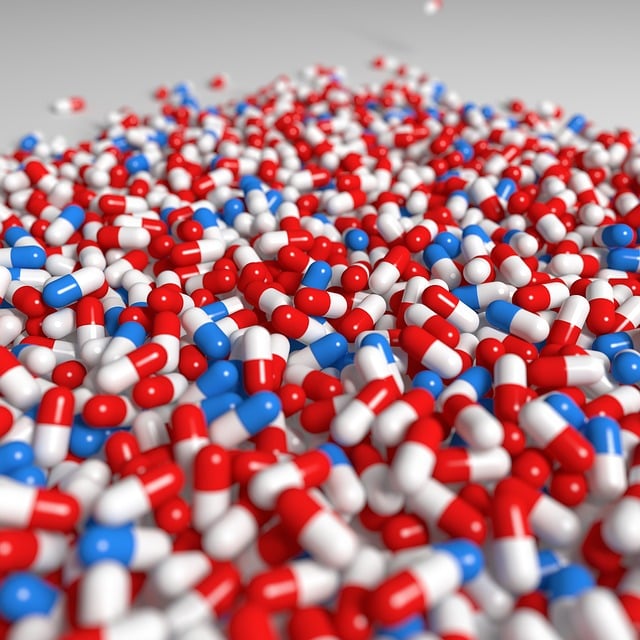Affordable Drug Rehabs in Concord, NH: A Pathway to Recovery
Drug Rehabs Concord New Hampshire offers affordable, accessible treatment for addiction, addressing…….
Over 15% US adults have used prescription painkillers not prescribed to them.
In the heart of New Hampshire, Concord stands as a beacon of hope for individuals battling substance use disorders. This article delves into the intricate world of drug rehabs within this vibrant city, exploring how specialized treatment centers play a pivotal role in the lives of those seeking recovery. We will unpack the essence of these rehab facilities, their evolution, global reach, and the multifaceted impact they have on communities worldwide. By examining various aspects, from economic implications to technological innovations, we aim to provide an insightful perspective on why Concord’s drug rehabs are not just a local phenomenon but a significant contributor to global efforts in addiction treatment.
At its core, a drug rehab, or substance use disorder treatment center, is a specialized healthcare facility designed to provide comprehensive care for individuals struggling with addiction. These centers offer a range of services, including medical detox, behavioral therapy, counseling, support groups, and aftercare programs. In Concord, New Hampshire, these rehabs have evolved to meet the unique needs of the community, incorporating evidence-based practices and innovative treatment modalities.
The primary goal of drug rehabs is to help individuals achieve long-term recovery by addressing the physical, psychological, and social aspects of substance abuse. This involves:
The concept of drug rehabilitation has evolved over several decades, reflecting changes in society’s understanding of addiction and its treatment. In the early 20th century, institutions often provided long-term, sometimes oppressive, treatments with limited success rates. The 1960s and 70s saw the emergence of more holistic approaches, focusing on individual therapy and group dynamics. This evolution continues today, driven by advancements in neuroscience, evidence-based practices, and a growing emphasis on personalized care.
In Concord, New Hampshire, the demand for drug rehab services grew alongside the nation’s recognition of substance use disorders as complex medical conditions. Local efforts to address this issue led to the establishment of several reputable treatment centers, each contributing to the city’s reputation as a hub for quality addiction care. Over time, these facilities have adapted to changing trends in addiction, incorporating new therapeutic techniques and technological aids.
The reach of Concord’s drug rehabs extends far beyond its geographical boundaries, as global trends in substance abuse present both challenges and opportunities for these treatment centers. Internationally, the United Nations Office on Drugs and Crime (UNODC) reports a steady increase in drug use and related deaths, highlighting the pressing need for effective treatment options.
Several key trends shape the global landscape of drug rehab:
The economic impact of drug rehabs is multifaceted, influencing both local communities and global markets. In Concord, these facilities contribute significantly to the city’s economy through direct employment, business development, and tourism related to recovery services. According to a study by the New Hampshire Department of Health and Human Services (2021), the state’s substance use disorder treatment sector supports over 3,500 jobs and generates substantial revenue from both public and private funding sources.
On a global scale, investments in drug rehab are driven by:
Technology plays a pivotal role in modern drug rehab programs, enhancing accessibility, personalization, and outcomes. Here are some significant advancements:
The regulatory framework surrounding drug rehabs is critical in ensuring quality care, safety, and ethical practices. Each country establishes its own guidelines and standards, often influenced by cultural, social, and economic factors. In the United States, for instance, the Substance Abuse and Mental Health Services Administration (SAMHSA) sets regulations, while in Europe, the European Monitoring Centre for Drugs and Drug Addiction (EMCDDA) provides guidance.
Key policy aspects include:
Despite the progress made in drug rehab, several challenges and criticisms persist, demanding attention and innovative solutions. Addressing these issues is crucial for enhancing treatment outcomes and ensuring long-term recovery.
Strategies to overcome these challenges:
The Harmony Center, a leading rehab facility in Concord, New Hampshire, has achieved remarkable success through its holistic approach to treatment. This center offers a comprehensive range of services, including yoga, meditation, art therapy, and outdoor adventures. By incorporating these alternative therapies into traditional treatments, Harmony Center caters to diverse learning styles and addresses the whole person—mind, body, and spirit.
Success Factors:
New Beginnings, another renowned rehab facility in Concord, focuses on evidence-based cognitive behavioral therapy (CBT) as the cornerstone of its program. This approach helps individuals identify and change negative thought patterns and behaviors associated with substance abuse. The center’s success lies in its structured yet flexible curriculum, which includes group therapy sessions, individual counseling, and family involvement.
Key Factors for Success:
The future of drug rehabs Concord New Hampshire, and worldwide, holds promising possibilities as technology, science, and societal attitudes continue to evolve. Several emerging trends shape the trajectory of this field:
In conclusion, drug rehabs Concord New Hampshire represent more than just treatment facilities; they are catalysts for positive change, hope, and healing. These centers play a crucial role in addressing one of the most significant global health challenges of our time—substance use disorders. Through comprehensive care, innovative technologies, and strong community engagement, Concord’s drug rehabs have earned a reputation for excellence, attracting individuals from diverse backgrounds seeking recovery.
As we look to the future, it is evident that these rehab facilities will continue to evolve, driven by scientific advancements, technological breakthroughs, and a growing global understanding of addiction as a complex, treatable condition. By investing in drug rehab, communities like Concord foster not only individual recovery but also societal well-being, public safety, and economic prosperity.
Q: What types of treatments are available at drug rehabs in Concord, NH?
A: Drug rehabs in Concord offer a wide range of evidence-based treatments, including cognitive behavioral therapy (CBT), motivational interviewing, medication-assisted treatment (MAT), individual and group counseling, family therapy, and peer support groups. Some facilities also incorporate holistic practices like yoga, meditation, and art therapy.
Q: How do I know if I or a loved one needs drug rehab?
A: If you’re experiencing persistent cravings for substances, struggling to control your use, or facing negative consequences due to substance abuse (e.g., legal issues, relationship problems, job loss), it may be indicative of an addiction. Consult with healthcare professionals or trusted support networks for a comprehensive assessment.
Q: Are drug rehabs expensive? How can I afford treatment?
A: Drug rehab costs vary widely depending on location, program intensity, and duration. Many facilities accept insurance, and financial aid options are available. Non-profit organizations and government programs may offer subsidized or free treatment for eligible individuals. Reach out to local rehab centers or community health resources for assistance.
Q: What role does family play in drug rehab and recovery?
A: Family involvement is often a crucial aspect of successful recovery. Many rehabs include family therapy sessions, providing an opportunity for loved ones to understand addiction better and learn coping strategies. Ongoing support from family members can significantly contribute to long-term recovery and relapse prevention.
Q: How effective are drug rehab programs?
A: The effectiveness of drug rehab varies based on individual factors, program quality, adherence to evidence-based practices, and ongoing support. Research consistently shows that comprehensive, individualized treatment plans lead to better outcomes. Long-term follow-up studies indicate that successful recovery is achievable with continued support and engagement in aftercare programs.

Drug Rehabs Concord New Hampshire offers affordable, accessible treatment for addiction, addressing…….

Concord, New Hampshire is renowned for its comprehensive network of effective drug rehabs catering t…….

Drug addiction is a growing concern in Concord, NH, fueled by easy access to various substances. Dru…….